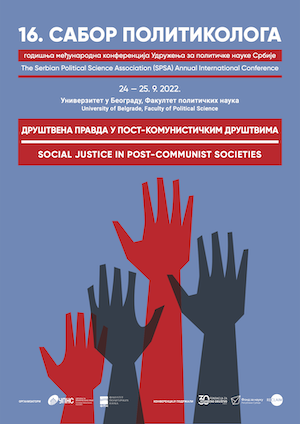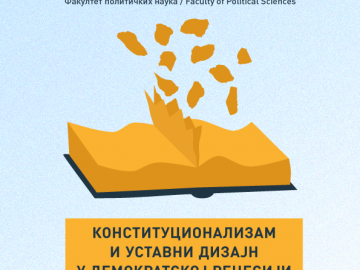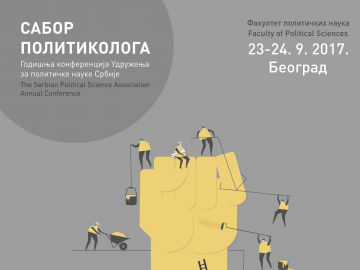Call for Papers: 17th Serbian Political Science Association Annual International Conference

EU Enlargement, Geopolitics, and the Russian-Ukraine War
Faculty of Political Science, Belgrade, October 21-22, 2023
We are pleased to invite applications to attend the conference on EU Enlargement Policy, Geopolitics, and the Russian-Ukraine War, which will take place on October 21-22, 2023 at the Belgrade Faculty of Political Science. The conference aims to bring together scholars, practitioners, and experts in the field of political science, international relations, economics, and public policy to discuss and exchange ideas on various topics related to EU enlargement policy and geopolitics within the context of the Russian-Ukraine war.
Over the past ten years, the EU enlargement process has faced a number of challenges. Apart from slow pace of reforms, the rule of law and governance issues, the rise of populism and autocratic leaders, the geopolitical dynamics of the Western Balkans have been increasingly shaped by the presence of great powers such as Russia or China, as they seek to extend their influence in the region through various means, including geo-economic investments, trade agreements, and political and cultural ties. The 2022 Russian military attack on Ukraine, has emphasized the role of geopolitics and geoeconomics in the region by creating a larger challenge for the EU enlargement policy for the Western Balkans.
The aim of the conference is to establish how geopolitical and geo-economic events have changed the European perspective of the Western Balkan region. Specifically, the conference will explore the impact of the Russian-Ukraine war on the EU enlargement policy and its implications for the Western Balkan region. We will focus on the role of EU and other great forces (the US, Russia, China etc) in the region, democracy, civil society, media capture, populism, right-wing forces, good governance, infrastructure investment, stabilitocracy, Russia, and China in shaping the political and economic landscape of the region.
We welcome applications from graduate students, postdoctoral researchers, faculty and research institute staff, and practitioners from a variety of disciplines, including political science, law, international relations, public policy, and economics.
We propose several potential panels all of which will be formulated within the current geopolitical context:
- Geopolitics and geo-economic in the Western Balkans,
- The EU enlargement policy in the context of new geopolitical reality,
- Geopolitics and changes in the political system,
- The EU, authoritarianism, and democracy,
- Local public policies as a response to geo-economic influence,
- Media capture,
- The strength of civil society as a barrier to geo-economic trends,
- Energy Crisis and New Green Agenda in the Western Balkans.
Interested applicants are invited to submit a 250-word abstract and a brief CV to politicke.nauke.srbije@gmail.com by July 15, 2023. Selected applicants will be notified by July 31.
We look forward to your participation in this conference.
Belgrade, Mar 1, 2023
International Selection Committee
Rok Zupančić, FDV, Ljubljana, Slovenia
Borna Zgurić, FPZ, Zagreb, Croatia
Marjan Gjurovki, Ss. Cyril and Methodius University of Skopje, N. Macedonia
Nerzuk Ćurak, FPN, Sarajevo, Bosna i Hercegovina
Filip Ejdus, FPN, Beograd, Serbia




